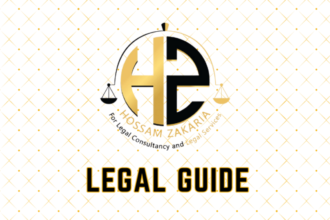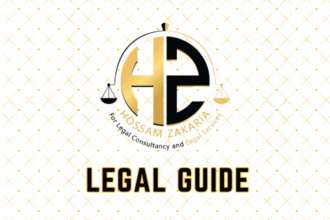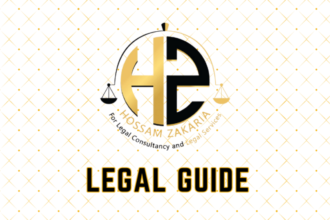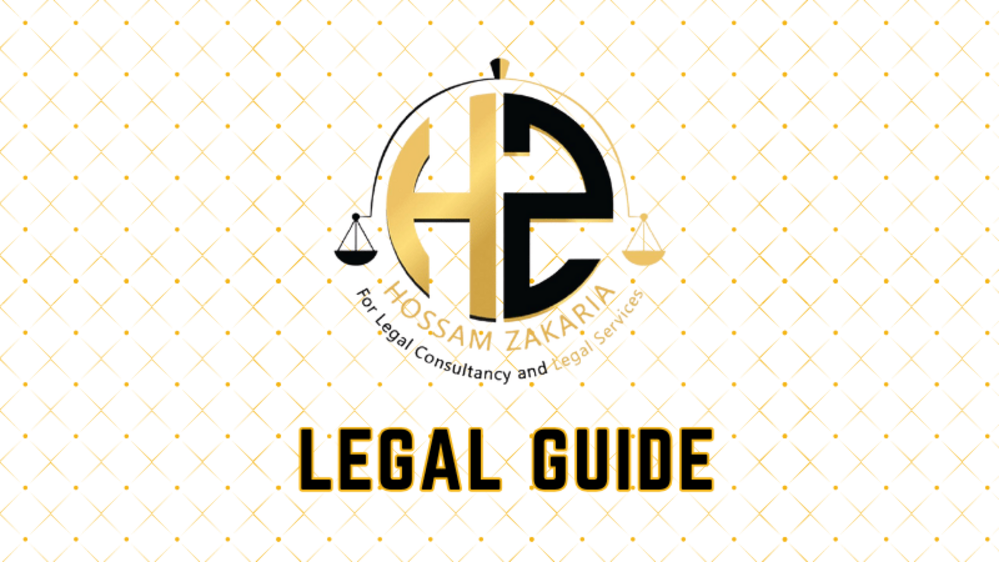Introduction: Sharia Compliance in Islamic Banking – UAE 2025 Legal Analysis
The United Arab Emirates (UAE) stands as a global leader in Islamic finance, hosting a robust regulatory framework built on the principles of Sharia law. In recent years, a series of pivotal legal updates have redefined the landscape for Sharia compliance in Islamic banking, most notably with the implementation of new federal decrees and guidelines effective in 2025. For businesses, financial institutions, legal professionals, and executives operating in or with the UAE, it is imperative to understand the nuances of these regulations—not only to maintain compliance but to leverage the opportunities they create in the dynamic market of the UAE and the wider Gulf region.
This guide delivers an in-depth, consultancy-grade analysis of Sharia compliance requirements in Islamic banking as regulated under UAE law as of 2025. It examines recent legislative changes, regulatory expectations, practical compliance strategies, and the risks of non-compliance. This article is essential reading for decision-makers, compliance officers, legal practitioners, and anyone seeking to navigate the complexities of Islamic banking in a jurisdiction renowned for its rigorous standards and global vision.
Table of Contents
- Overview of Sharia Compliance in UAE Banking Law (2025 Updates)
- The Regulatory Framework for Islamic Banking in the UAE
- Core Provisions of Sharia Compliance: Key Legal Requirements
- Comparative Table: 2025 Updates vs Previous Framework
- Ensuring Sharia Compliance: Practical Strategies for UAE Banks
- Risks of Non-Compliance and Enforcement Measures
- Case Studies: Sharia Compliance in Action
- Future Trends and Proactive Steps for Businesses
- Conclusion: Strategic Compliance for Sustainable Growth
Overview of Sharia Compliance in UAE Banking Law (2025 Updates)
Islamic banking in the UAE operates within an intricate legal ecosystem aligned with Sharia principles, specifically the prohibitions on riba (interest), gharar (excessive uncertainty), and maysir (gambling), among others. The UAE’s commitment to strengthening its position as a global Islamic finance hub is reflected in the recent legislative amendments and regulatory updates implemented from January 2025.
The Legal Imperative
As per Federal Decree-Law No. 14 of 2018 on the Central Bank & Organization of Financial Institutions and Activities (as amended in 2023 and further clarified in early 2025), all Islamic banks and windows are mandated to adhere strictly to Sharia principles. The Central Bank of the UAE, through its Higher Shari’a Authority (HSA), issues authoritative guidance and enforceable directives, making Sharia compliance not only a religious but also a statutory requirement. The HSA’s decisions now hold legal force across all Islamic banking operations, emphasizing the necessity for robust compliance frameworks.
The Regulatory Framework for Islamic Banking in the UAE
Central Regulatory Authorities
- Central Bank of the UAE (CBUAE): Issues regulations, supervises banks, and enforces Sharia compliance.
- Higher Shari’a Authority (HSA): As per Article 6 of 2018 Federal Decree-Law, the HSA provides the ultimate guidance on Sharia aspects applicable to Islamic financial institutions.
- Shari’a Supervisory Boards (SSBs): Each licensed institution must establish an SSB to oversee the institution’s activities for conformity with Sharia principles.
Recent Legal Developments (UAE Law 2025 Updates)
- Cabinet Resolution No. 5 of 2025 strengthens the independence and scope of SSBs, setting minimum standards for member expertise and reporting obligations.
- Ministerial Circular No. 1/2025 introduces mandatory annual Sharia compliance audits and amplifies transparency requirements around product structuring.
- Amendments to Central Bank Regulations reinforce penalties for non-compliance and outline clearer reporting channels.
Regulatory Process Flow (suggestion for a diagram showing HSA to SSB to Compliance Department)
An effective compliance process includes ongoing direction from the HSA, internal SSB review, and ultimate implementation by institutional compliance teams, who are responsible for ongoing monitoring and reporting to both regulators and stakeholders.
Core Provisions of Sharia Compliance: Key Legal Requirements
1. Institutional Shari’a Governance
- Appointment of Shari’a Supervisory Boards: As mandated by Cabinet Resolution No. 5 of 2025, each Islamic financial institution must appoint a qualified SSB, independent from management, responsible for oversight and issuance of fatwas or Shari’a pronouncements.
- Annual Sharia Audit: Ministerial Circular No. 1/2025 establishes the need for external or internal Sharia audits, with findings submitted to both the institution’s board and CBUAE.
2. Compliance with Sharia Standards
- Product and Contract Vetting: All financial products must be vetted according to AAOIFI Sharia standards and approved by the HSA and internal SSB. This applies to popular contracts such as Murabaha, Ijara, Mudarabah, Musharakah, and Sukuk.
- Disclosure and Transparency: Banks are required to deliver full disclosure to clients regarding the nature, risks, and returns associated with Islamic financial products (per CBUAE Circular 4/2024).
3. Recordkeeping and Reporting
- Comprehensive Documentation: Financial contracts must be documented to reflect compliance, with audit trails maintained.
- Regulatory Reporting: SSBs to submit bi-annual compliance reports to the HSA, as per 2024 Central Bank Circulars.
4. Penalties and Enforcement
- The Central Bank may impose administrative, civil, or criminal penalties for material breaches (see Cabinet Decision No. 47/2023).
- Institutions found repeatedly non-compliant risk suspension or revocation of their Islamic banking license.
Comparative Table: 2025 Updates vs Previous Framework
| Aspect | Pre-2025 Framework | 2025 Updates |
|---|---|---|
| SSB Independence | Advisory only, management influence possible | Mandated separation of SSB from management, HSA oversight strengthened |
| Sharia Audits | Not consistently required, discretion of institution | Mandatory annual audit and HSA reporting |
| Disclosure to Clients | General product summaries | Detailed, risk-specific, and compliant with AAOIFI disclosure |
| Penalties | Largely administrative fines | Expanded to include license suspension; enhanced public disclosure of violations |
Ensuring Sharia Compliance: Practical Strategies for UAE Banks
1. Strengthening Internal Shari’a Governance
Institutions should consider:
- Appointing qualified SSBs per HSA recommendations, ideally including members with both legal and Islamic finance backgrounds.
- Developing integrated compliance and audit teams to interface directly with SSBs and the HSA, ensuring ongoing knowledge transfer and adherence.
2. Product Development and Approval Process
- Initiating product design reviews in consultation with the SSB before market launch.
- Implementing ‘Sharia risk’ assessment frameworks and documenting decisions and fatwas to demonstrate a clear audit trail.
3. Client Communication and Disclosure
- Updating client-facing documentation to provide plain-language, risk-focused disclosures per the latest CBUAE standards.
- Regular training for front-line staff on explaining product structures and compliance features in client interactions.
4. Technology and Recordkeeping
- Adopting digital compliance platforms to centralize contract records, SSB opinions, and regulatory submissions.
- Embedding compliance checks at both origination and ongoing monitoring stages.
Checklist: Sharia Compliance Essentials
| SSB Independence Confirmed | ☐ |
| Annual Sharia Audit Completed | ☐ |
| Product Documentation Aligned to AAOIFI | ☐ |
| Client Disclosures Reviewed | ☐ |
| Ongoing Reporting Submitted | ☐ |
Risks of Non-Compliance and Enforcement Measures
Legal and Regulatory Risks
- Fines and penalties as prescribed under Cabinet Decision No. 47/2023, which range from AED 100,000 to suspension of activity.
- Reputational damage and possible civil litigation from aggrieved parties.
- Loss of market access and investor confidence for persistent non-compliance.
Compliance Strategies
To mitigate these risks, institutions should:
- Adopt a zero-tolerance approach to lapses, utilizing real-time risk management tools.
- Maintain continuous engagement with regulatory authorities and industry forums for early update adoption.
- Prioritize transparency and swift remedial action in the event of breaches.
Case Studies: Sharia Compliance in Action
Case Study 1: Murabaha Financing Non-Compliance
Scenario: A UAE-based Islamic bank introduced a new auto-finance Murabaha product without full SSB review, leading to a customer complaint to the Central Bank. Investigation revealed insufficient documentation and deviations from AAOIFI standards.
- Outcome: The bank faced an administrative fine and was required to undergo a full product review, with external audit oversight for the next 12 months. Regulatory instructions mandated retraining of all front-line staff.
Case Study 2: SSB Independence Strengthened
Scenario: Following the 2025 amendments, a major Islamic window at a conventional bank reconstituted its SSB, appointing three independent scholars with expertise in both Islamic finance and law. Monthly compliance workshops and annual external audits were integrated into its operational cycle.
- Outcome: The institution reported higher client satisfaction and passed its first annual HSA-mandated Sharia audit with zero non-compliance findings, demonstrating the value of proactive adaptation to new legal requirements.
Future Trends and Proactive Steps for Businesses
1. Increasing Regulatory Scrutiny and Digitization
Expect ongoing enhancements in reporting requirements, coupled with a drive towards adopting RegTech solutions that streamline real-time risk monitoring and automate compliance tasks, as signaled by Central Bank strategic guidance documents released in Q1 2025.
2. Alignment with Global Islamic Finance Standards
The UAE continues to align its regulatory approach with AAOIFI and other international benchmarks, enhancing cross-border acceptance and marketability of UAE-based Islamic financial products.
3. Growing Investor and Consumer Expectations
Clients and investors increasingly demand rigorous, transparent Sharia compliance backed by observable governance structures and independent audit outcomes. Proactively embracing these standards will serve as a differentiator in the Islamic finance marketplace.
4. Recommended Best Practices
- Continuous professional development in Sharia, finance, and legal domains for all relevant staff.
- Investment in digital solutions for compliance management, reporting, and client interaction.
- Routine engagement with regulators, SSBs, and industry peers to maintain best-practice standards.
Conclusion: Strategic Compliance for Sustainable Growth
The UAE’s ever-evolving Islamic banking regulatory framework delivers both challenges and opportunities. By prioritizing compliance and governance in line with the latest legal and regulatory expectations—specifically those formalized in 2025—institutions not only mitigate risk but also position themselves for sustainable growth in an increasingly competitive and globalized environment.
In the years ahead, forward-looking organizations will integrate Sharia compliance into the core of operational strategy. This means fostering robust internal controls, leveraging technology for accountability, and nurturing an organizational culture attuned to both local legal requirements and global best practices in Islamic finance. Partnering with specialized legal advisors with current, practical knowledge of UAE law is more vital than ever for businesses seeking to thrive in the landscape shaped by these important updates.
For up-to-date, actionable advice and bespoke Sharia compliance strategies tailored to your organization’s needs, it is highly recommended to consult a UAE-based legal consultancy with expertise in Islamic banking law, regulatory reporting, and governance.



